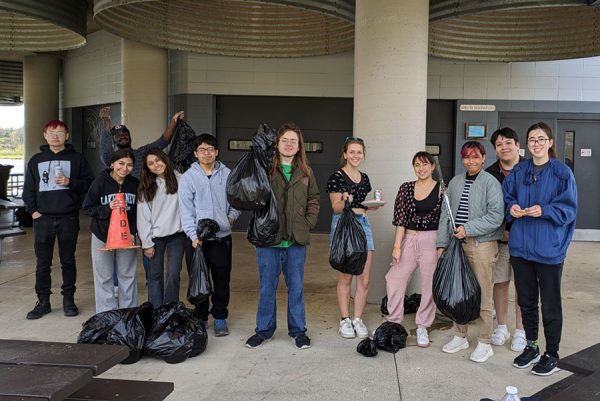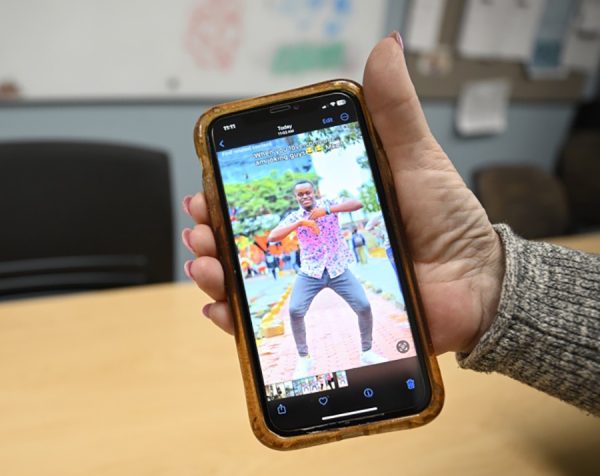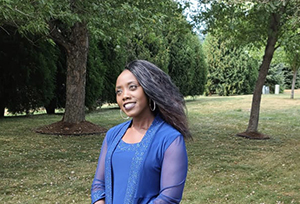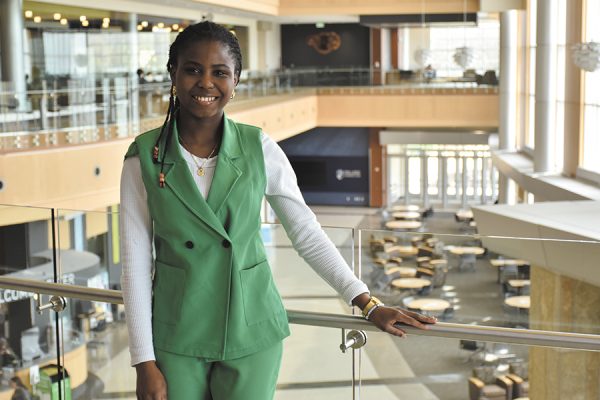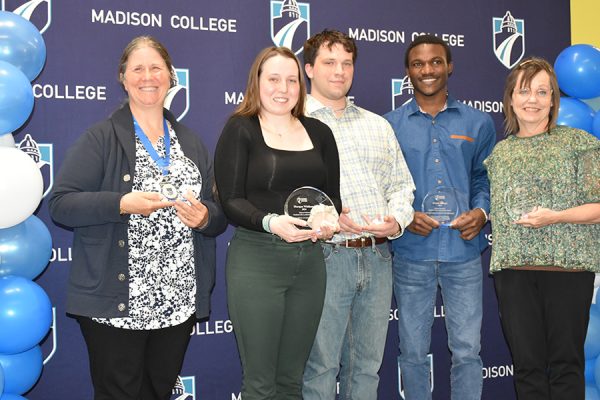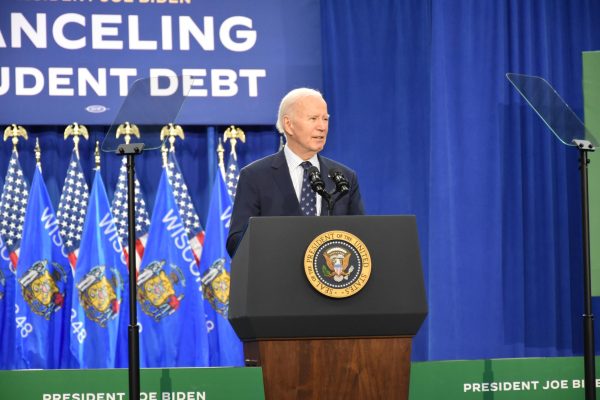Changing the narrative of incarcerated students
April 19, 2023
Being released from prison and reentering the world doesn’t mean you have a job lined up.
That’s what 5,280 reentering people discover every year when they try to rejoin the workforce.
Madison College is determined to change that.
On Friday, April 7, the Intercultural Exchange Center, United Common Ground and the Center of International Education presented “Changing the Narrative of Incarcerated Students.”
Organized by Olivia Lemke, the Intercultural Exchange Center associate advisor, and moderated by Jamie Reinart, the Center for Reentry Education manager, the presentation included speeches from experts in reentry. The Institute for Equity and Transformation Change director Marco Torrez-Miranda and Ronda Davis, a specialist from Justice-Involved Families State, reflected on what changing the narrative means and what it’s like for a student to be affected by parental incarceration, respectively.
The reentering program was created for incarcerated students to provide critical skills and knowledge that lead to livable wage employment. Madison College provides the training and education, and the Department of Corrections (DOC) covers the cost of instruction and helps with employment. The Workforce Development Board of South Central Wisconsin (WDBSCW) facilitates interview opportunities and connects graduates with potential employers.
Highlighting the presentation was a talk from Reinart, who described pathways from prison to higher education and proudly spoke about former students and program-available resources.
What got everybody’s attention was the two speakers who graduated from the program.
“I truly believe the most important voice is the voice of our students,” said Reinart when introducing the graduate panel. “The most important voices are Ian and Aaron. “
Ian Bowers served 13 years in prison, but you wouldn’t know it by how confident he was in answering questions about his past. He talked about his path from incarceration to project manager at Findorff, the construction company.
While in prison, he began an apprentice program through Madison College, a pilot program called the Construction and Remodeling Techniques program.
Bower shared that when he was closer to graduating from the program, he started writing many letters, joking, “Being incarcerated, I wrote a lot — kind of my pastime.”
One of those letters landed on the desk of a VIP at Findorff, who reached out to him.
After receiving his degree, Bowers planned on furthering his education, but Findorff was so taken with him that they would train him instead.
Aaron Sowieja served six years before being released.
Sowieja said that most incarcerated people don’t have many job opportunities. However, he says he and Bowers prove it can be done.
“I want to change people’s perceptions. We’re not all bad people. We made bad decisions. Nobody can argue that fact,” Sowieja said
Sowieja enrolled in the Production Welding Program through Moraine Park Technical College and graduated in four and a half months.
However, there were other issues he had to confront. Halfway into his sentence, Sowieja decided to stop being angry at everybody else and take responsibility for his actions. He decided to turn his life around, beginning with his mental health.
After developing ways to cope with his emotions, he heard about the Industrial Maintenance program through MATC, where students receive two embedded degrees.
He wrote the education director and told them his story. After being accepted into the program, where he took classes seven hours a day, he received a motion granted for early release because of good behavior.
Within two weeks, Sowieja had four job interviews. He accepted a job as a maintenance technician at Village Hearth Products in Sun Prairie.
He remains a student, now in the Electro-Mechanical Technology program, and was recently inducted into Madison College’s Phi Theta Kappa honor society chapter.
One of the audience’s questions was how to address past incarceration while interviewing with a potential employer.
Bowers said it’s about addressing the issue upfront, allowing them to get ahead and develop their own narrative.
He focused on “owning” it when interviewing.
“Yes, I made a mistake. I have work experience. I have an education. Here’s the degree. Here’s my plan moving forward. Here’s how this job position fits with my goals and dreams,” Bowers said.
Sowieja agreed and said he brought up his criminal history almost immediately.
“I don’t want to feel like I’m hiding anything. I brought it up in the interview. The most important part of presenting that part of our lives is to turn negatives into positives,” Sowieja said.
Sowieja said that while he didn’t like being in prison, he didn’t hide his past, saying, “I am the person I am today because of it. I am proud of that person.”
Finally, they were asked about who is the most essential storyteller in their narrative.
Bowers didn’t hesitate. “It’s you. The people that believe in you. A collective voice. Own your story. Saying where you want to go and be in life. You have to own where you came from. I can’t change that. I can only contribute to my story and give retribution to the mistakes that I made.”
Sowieja said he wants people to look at the whole broad spectrum of his life. Not necessarily of who he was in one part of his life. He said he strives for what his legacy is going to be.
“I am not the storyteller. I am the story maker.”






